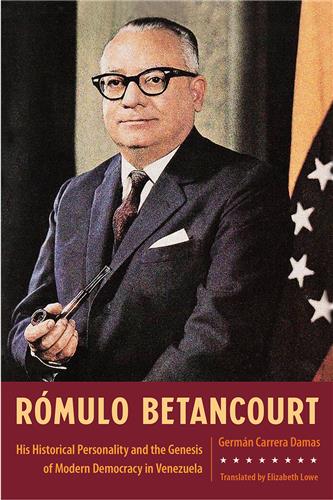Building a Nation
Caribbean Federation in the Black Diaspora
Eric D. Duke
Paper: $29.95
- Series: New World Diasporas
Caribbean Studies Association Gordon K. and Sybil Lewis Award - Honorable Mention
"Opens new perspectives on the building of a Caribbean federation in the twentieth century. . . . Connects the struggles for self-determination and self-government in the West Indies with black diaspora politics from the late nineteenth century to the onset of the independences of the Anglophone Caribbean in the 1960s."—American Historical Review
"Duke articulates the perspectives manifested in popular culture and provides an in-depth analysis of diasporan roles and reactions . . . in this profound, well-researched, and lucid scholarly work."—Choice
"An original, insightful, and well-researched book."—Journal of Caribbean History
"Complicat[es] our understanding of the relationships between West Indian nation building and the black diaspora’s broader global context, particularly regarding various nationalisms, regionalism, and race. . . . An important contribution to black diaspora studies as well as histories of the British Empire, Caribbean, and the black freedom struggle in the United States."—Journal of Latin American and Caribbean Anthropology
"Adds new complexities to the analysis of the West Indian Federation by approaching it as a critical practice in the ‘racialized global struggle’ for black uplift."—New West Indian Guide
"Remarkable, impressive. Duke makes a double contribution to historical scholarship: to the historiography of federalism in the Caribbean and to the historiography of political dissent, activism, and solidarity within Caribbean diaspora."--Winston James, author of Holding Aloft the Banner of Ethiopia: Caribbean Radicalism in Early Twentieth-Century America
"This well-researched and accessible book deepens our understanding of early twentieth-century West Indian political culture and transnational mobilization."--April Mayes, author of The Mulatto Republic: Class, Race, and Dominican National Identity
The initial push for a federation among British Caribbean colonies might have originated among colonial officials and white elites, but the banner for federation was quickly picked up by Afro-Caribbean activists who saw in the possibility of a united West Indian nation a means of securing political power and more.
In Building a Nation, Eric Duke moves beyond the narrow view of federation as only relevant to Caribbean and British imperial histories. By examining support for federation among many Afro-Caribbean and other black activists in and out of the West Indies, Duke convincingly expands and connects the movement's history squarely into the wider history of political and social activism in the early to mid-twentieth century black diaspora.
Exploring the relationships between the pursuit of Caribbean federation and black diaspora politics, Duke convincingly posits that federation was more than a regional endeavor; it was a diasporic, black nation-building undertaking--with broad support in diaspora centers such as Harlem and London--deeply immersed in ideas of racial unity, racial uplift, and black self-determination.
Eric D. Duke is associate professor in the Department of African American Studies, Africana Women's Studies, and History at Clark Atlanta University. He is coeditor of Extending the Diaspora: New Histories of Black People.
- Sample Chapter(s):
- Table of Contents
- Excerpt
Awards
Gordon K. and Sybil Lewis Award Honorable Mention - 2017
Duke articulates the perspectives manifested in popular culture and provides an in-depth analysis of diasporan roles and reactions. . . . in this profound, well-researched, and lucid scholarly work....Highly recommended.
--Choice
Opens new perspectives on the building of a Caribbean federation in the twentieth century. . . . Connects the struggles for self-determination and self-government in the West Indies with black diaspora politics from the late nineteenth century to the onset of the independences of the Anglophone Caribbean in the 1960s.
--American Historical Review
A distinctive contribution to the historiography of the black diaspora in New York, and the historiography of the West Indies Federation.
--Journal of Caribbean History
Outlines the concatenation of twentieth-century developments that congealed into post-World War II concessions by Britain to grant some form of self-rule to its West Indian colonies under a version of a federal system.
--New West Indian Guide
Shows the evolving and often-conflicting relationships between black diaspora activists and the creation of a West Indian federation. . . . From start to finish, Building a Nation exhaustively addresses major themes that ran throughout the many decades-long process of imagining and creating federation, and connects each to race and black freedom struggles. . . . An important contribution to black diaspora studies as well as histories of the British Empire, Caribbean, and the black freedom struggle in the United States.
--Journal of Latin American and Caribbean Anthropology












